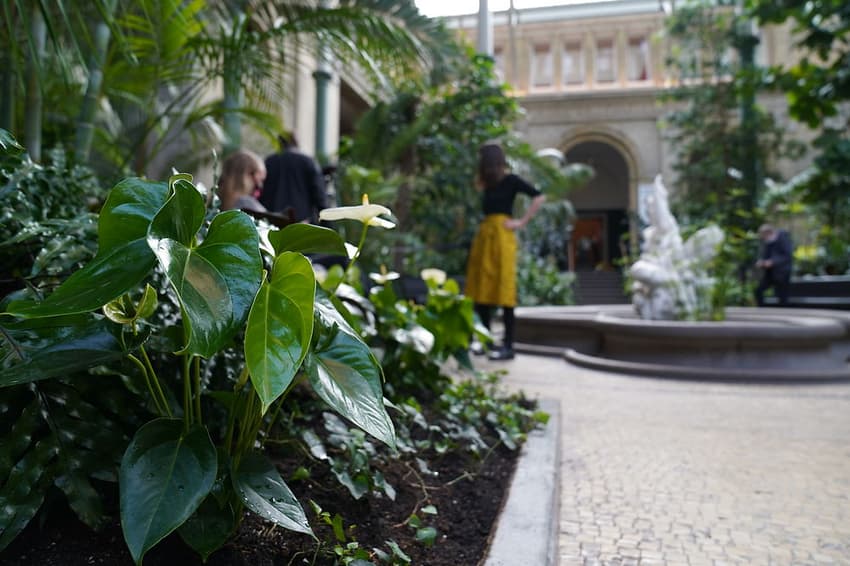Changes to the current rules will come into force on Wednesday, April 21st, superceding a previous plan for reopening and making rules more lenient.
“Because of the good situation we are in in Denmark, we are in a privileged situation in which it is possible to open more,” justice minister Nick Hækkerup said last week following talks with leaders from other parties.
Health minister Magnus Heunicke previously said that Denmark was “succeeding in keeping the epidemic at a stable, low level and that gives us the basis to consider whether there is space for further reopening.”
Requirements for the use of a corona passport to access services in a range of instances also take effect.
Corona passport: What you need to know about Danish Covid-19 vaccine and test documentation
The changes to the reopening plan, published on April 15th by the Ministry of Justice, are summarised below.
Assembly limit
The next stage of earlier plan for reopening was scheduled to take effect on April 21st. That remains the case, but today's date will now additionally herald the first in a number of steps to speed up the eventual full lifting of limits on public assembly.
The public assembly limit indoors is raised from 5 to 10 persons as of Wednesday April 21st.
It will further increase on May 6th, to 25 people. The following phase of reopening on May 21st sees the limit go up again, to 50, before reaching 100 on June 11th.
For outdoors gatherings the assembly limit is now 50 people.
It will increase in the coming weeks as follows: 75 on May 6th; 100 on May 21st; completely revoked on June 11th.
August 11th will see the end of any form of assembly limit, indoors or outdoors, according to the plan.
Restaurants, bars and cafes
It is now possible to dine indoors at a restaurant with up to nine other people, provided you reserve a table and everyone has a valid corona passport. The earlier plan would not have allowed this until May 6th.
The rules for corona passports themselves have also been adjusted. People without corona passports can still be served at cafes and restaurants, providing they sit outdoors.
Serving must stop at 10pm and establishments must be closed from 11pm until 5am.
Advertisement
Children and education
Schools have already been partially reopened, with the number of year groups and the amount of time spent physically at school gradually increasing.
Grades 5 to 8, previously only allowed to go to school part-time, are now able to meet with their classes in the weeks when they are not in classrooms for outside lessons.
Final year students and vocational college students can physically go to classes at 80 percent and 100 percent of normal attendance, respectively.
Universities, which have remained more restricted than other levels of education, will be allowed to attend at 30 percent of normal contact time for outdoor lessons.
Shopping
The era of supermarkets and pharmacies being the only open stores is now behind us, as other stores have gradually been allowed to open. As of today, department stores and larger shopping malls can open.
Sports and culture
The so-called ‘Superliga model’ used last year to allow football fans to attend matches returns. That means up to 500 spectators can attend restricted, separated sections within stadiums as of April 21st. Corona passports will be required and all professional football is encompassed.
Museums, libraries and art galleries reopen on Wednesday, as was the plan under the earlier reopening schedule. Corona passports are required.
Children and young people under 18 can now take part indoors sports, and adults may accompany them without having to show a corona passport. Coaches aged over 18 may also participate. A limit of 25 people may gather at once.
People over the age of 70 may also take part in indoors sports again as of today. Here, the assembly limit is 10 and corona passports apply.
Travel
The foreign ministry eases its national travel guidelines on Wednesday, but advice remains against most trips outside of the country.
Travel to and from some countries will become easier under the relaxed recommendations, but many restrictions will remain tight.
You can read about the updated guidelines in detail in our separate report.
A number of rules relating to travel into the country, primarily with regard to entry quarantine and 'valid reasons' for visiting, are also updated today. You can read more about that in this article, but in short:
- People who travel from “yellow” countries or regions not required to isolate on arrival in Denmark.
- Business travellers no longer required to isolate.
- Danes who own remote holiday homes termed ødegård in other Nordic countries no longer required to isolate.
- List of 'worthy' reasons which enable non-tourist travel into the country to be extended: people attending certain types of Danish residential schools (højskoler and efterskoler), international students, spouses or partners and children of Danes who live abroad now allowed to enter Denmark (in the latter case they must be travelling together with the Danish family member).
Advertisement

Join the conversation in our comments section below. Share your own views and experience and if you have a question or suggestion for our journalists then email us at [email protected].
Please keep comments civil, constructive and on topic – and make sure to read our terms of use before getting involved.
Please log in here to leave a comment.